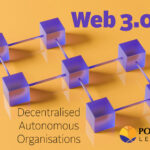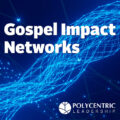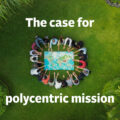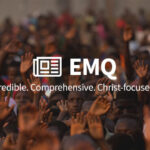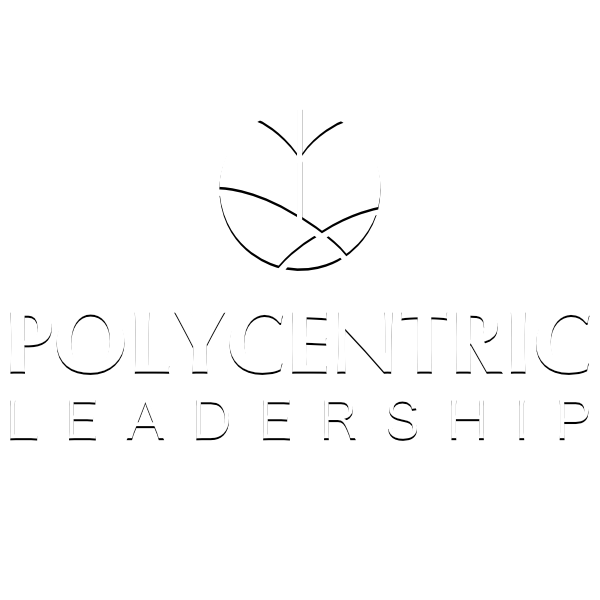Where Do We Need More Research?
GUEST POST BY JOSH LAXTON
This is part of an article series I wrote with Ed Stetzer.
Question 4: Where is further research needed to accelerate the Great Commission?
We live in a world that’s always conducting research. Because we are bombarded by various kinds of research every day, we tend to forget the purpose of research. The purpose of research can range from information gathering to problem-solving or to increase our understanding in an area, field of study, or a discipline.
For the church, the question of “where further research is needed?” can be met with a warm reception or a cold rejection. There may be some that believe the church doesn’t need to do any further research. All churches need to do is be faithful to the Bible and let God worry about the results—especially when it comes to the Great Commission. On the other hand, there may be those hungry to receive the latest research so that they can pivot their strategy with the hopes of being more effective missionally.
We at the Wheaton College Billy Graham Center and Lausanne North America believe in research. Therefore we welcome more information, data, and research in areas with the hope of becoming more effective at mission.
On our Lausanne Listening Call back in March, over two-hundred Christian leaders shared what areas they believed more research was needed to accelerate the Great Commission in our time. After spending some time with the data, we broke down the majority of what was shared into the following six topics/areas where more research is needed in order for the church in North America to become more effective at participating in the Great Commission.
Learning how to be human in a technopoly.
Neil Postman in his book, Technopoly, notes three classifications of culture: tool-using cultures, technocracies, and technopolies.
Particularly from the late 18th century towards the later part of the 20th, America was predominantly a technocracy (to use Postman’s language). In a technocracy, inventions and innovations of technologies are used to enhance life and make it more efficient. Postman writes,
Technocracy… sped up the world. We could get to places faster, do things faster, accomplish more in a shorter time. . . . There were empires to build, opportunities to exploit, exciting freedoms to enjoy, especially in America. There, on the wings of technocracy, the United States soared to unprecedented heights as a world power (Technopoloy, 45).
Even with technology enhancing life, making it more efficient to live, move, and be in the world, there was still this essence of human beings controlling technology for and towards a greater purpose.
Times have changed. For the past 20 years or so, we have zoomed into the digital age, and experienced the technological revolution. The age we now live is what Postman calls a technopoly.
Different than in a technocracy, human life, in a technopoly, finds its meaning in machinery and technique (52). Human beings, in a technopoly, are consumed by technology. Technology becomes more valuable than being human, because technology is what gives humans their value—what you can do through technology, what you can buy through/with technology, what you can view through technology, etc. And what happens in such an environment is the slow erosion of what it means to be human.
In this digital revolution, this technopoly—where people tend to consume the digital and the technological without ever asking should we, or how much should we—the church needs more research. We need more theological research and study around what it means to be human contextualized to those in the West. We also need more qualitative research around the negative and damaging effects of technology on the theological essence of what it means to be human as well as best practices for individuals and families to control technology rather than allowing technology to control them.
Understanding and leveraging the power of data, social media, and online engagement for the church in a digital age.
There are certainly positives to living in a digital age. While the church, in general, tends to be slow in adopting new innovations and technologies, it may be a good thing for more research to be conducted with churches that leverage the power of data, social media, and online engagement for greater ministry and mission impact.
I believe churches need a comprehensive strategy in reaching the world—especially reaching people in North America. And churches can no longer employ an analog ministry and mission strategy in a digital world. However, I think many churches will need to see the proof of the strategy before they adopt the strategy. That’s why more research needs to be done. We need research that measures the effectiveness of online engagement. Churches need to know the best practices that reach people, keep people engaged, and that even prompts them to connect with the church from the online world. Churches need to know how to grow their social media platform—not so they can be more popular but so that Jesus can become more famous! We need research on how to leverage online data for a city, community, or zip code that may be used to craft sermon series, launch new ministries, or start third places. Churches need to know how they can leverage the digital space for effective discipleship without the fear of replacing physical gatherings and community.
In short, we live in a time where information and data are endless. Furthermore, our potential reach to disseminate information and knowledge is limitless. However, with the proper research in the hands of church leaders, churches can utilize the digital age to have wider and deeper participation in the Great Commission.
Different models and levels of being a multi-ethnic church.
Multi-ethnicity or the multi-ethnic church has become a trending topic for North America over the past few years. I see this as a good thing as churches should strive to reflect the community and cities as they give witness to the power of the gospel that unites people in their diversity.
However, there’s not a one-size-fits-all multi-ethnic model for churches. As anyone in this space would agree, multi-ethnicity is not only complex and messy, but also difficult. Under the banner of multi-ethnicity there is multi-racial, multi-lingual, multi-cultural, and multi-socioeconomic elements. Each layer, under multi-ethnicity, adds a level of complexity and difficulty.
Since the rise of multi-ethnic resources over the last two decades, North America has experienced a rise in the number of multi-ethnic churches. I believe this trend will continue—especially as North America’s demographics become more diverse. However, more research is needed to understand the practical outworking of this theological impetus. In short, we need more research around theories and models for churches desiring to be multi-ethnic.
Bob Whitesel, Professor of Missional Leadership at Wesley Seminary, wrote an article a few years back entitled, “Five Types of Multicultural Churches: A New Paradigm Evaluated and Differentiated.” In this article Whitesel writes the following,
This article assesses the strengths and weaknesses of different multicultural church models. Daniel Sanchez offered some of the earliest depictions of such models, but 35 years later they beg to be updated. And despite the proliferation of books on the topic, no significant updating or additions to Sanchez’s categories have been offered other than the Sider et. al. partnership model.
I agree with Whitesel and am grateful for his articulation of his five models of multicultural churches. However, I do believe more research—specifically around different case studies—can and should be done. Doing so will help expand the adoption and implementation of churches becoming more multi-ethnic in a cultural milieu becoming more diverse.
According to the North American leaders on the Listening Call back in March, there are a few more area
Understanding and implementing a polycentric leadership model in leading and engaging in missions.

Based upon this definition, polycentrism applied to the church’s mission is different than a plurality of leadership in a local church. Polycentrism is about independent bodies coming together under a single system yet maintaining their autonomy and distinction as an organization.
This terminology may be new for many. The reason for this may be because it was introduced last year by Joseph Handley in his dissertation entitled, “Polycentric Mission Leadership.” Handley notes in an article that appears on the Lausanne website, “During my studies, I came to believe that polycentrism provides a stronger leadership paradigm for leading missional endeavors in an interdependent, globally networked world.”
Handley goes on to express,
I am convinced that a collaborative, communal approach to leadership that empowers multiple centers of influence as well as a diverse array of leaders is better suited to addressing the issues before us during this era of a globalized world, even more so now that I see the nations pulling apart from one another through tribalized reactions to the challenges we face. We need each other!
While it may be new terminology for most, the concept isn’t that new. James Davison Hunter in his book, To Change the World, writes on the power of elites to influence and change culture. He notes, “When networks of elites in overlapping fields of culture and overlapping spheres of social life come together with their varied resources and act in common purpose, cultures do change and change profoundly.
In similar fashion, polycentric leadership seeks to leverage the social capital, resources, and thus power of multiple mission organizations to engage a nation, region, city, or community with the gospel.
Whether this is a new concept or term for you, we will need more research around what it is and how it is fleshed out in practice.
Conducting ministry and mission in a pluralistic and ever-increasing secular-progressive culture.
There’s been so much cultural change that has transpired in the U.S. But let’s not forget that Canada, which is part of North America, has witnessed many cultural changes sooner. I’m sure there are times when our Canadian brothers and sisters look at what Christians here in America are dealing with and think to themselves “we dealt with that fifteen years ago.”
Nevertheless, North America as a whole, as a culture, will continue moving farther away from Judeo-Christian values—values that once held a prominent position in the West. In addition, the culture will grow ever-more pluralistic and secular. If they will engage in effective ministry and mission in such a cultural milieu, the church will have to learn contemporary bridge building techniques and strategies. Therefore, the church will need to embrace research coming out that gives them a better understanding of the idols of the current culture.
Call it our Acts 17 exercise. As Paul went around the city of Athens, he observed all the idols. He saw the idols that were important to the Athenians. He looked for a connection point, which he found in an idol to an unknown God.
Idolatry has existed since the Fall of humanity. However, each people group, each culture, even each individual person has different idols they worship. If the church is going to conduct effective ministry and mission, both leaders and every day believers will need to be aware of the idols in contemporary culture.
Not only will churches need to embrace an Acts 17 exercise to engage in effective ministry and mission, but they will also need more research around new evangelism models, next generation ministry models, and new church planting and church ministry models for the 21st Century.
It’s clear we live in a transitional period in North America—both culturally and ecclesiastically. The cultural and thus contextual changes in which we conduct ministry and mission will warrant new structures and strategies that (1) facilitate the biblical vision of what it means to be a New Testament Church and (2) the missional mandate of what it means to be the New Testament people of God advancing the Good News of King Jesus in both proclamation and demonstration.
Why Evangelicalism has seemingly failed and where Evangelicalism goes from here.
There’s no denying that Evangelicalism is struggling on two fronts. First, Evangelicalism as a movement is struggling in its effectiveness in engaging and reaching a secular-progressive and pluralistic culture. I believe research under point five will help with this struggle.
Second, Evangelicalism is struggling in maintaining any sort of unified front not only across evangelical denominations, networks, ministries, and organizations but within many of the denominations, networks, ministries, and organizations themselves. This is hurting both our witness and our social capital.
A quick scan through the social media feeds of evangelicals can at least give some antidotal reasoning as to why Evangelicalism struggles on the unity front. However, more research should be done to uncover what has, is, and will continue to divide evangelicals moving deeper into the 21st Century.
Additionally, we not only need to know what is dividing us, but we need to know where we go from here. Is Evangelicalism doomed as a movement? For some, maybe. But I believe there is a future for evangelicals.
Like I noted before, we (the culture and churches in North America) are in a transitional moment. Evangelicals need to steward this transitional moment in history by creating for themselves a defining moment missionally. To do so will require some work at least around reimagining the following, “Who are evangelicals? What do evangelicals believe? And how do evangelicals go about engaging culture?” Answering such questions will help create a defining moment and provide clarity for the remnant of evangelicals as we go deeper into the 21st century.
More Information
- This article originally appeared on Josh Laxton’s site at https://joshlaxton.com/2021/07/20/accelerating-the-great-commission-where-do-we-need-more-research/ and is published here with permission.
- Image by Brian Lundquist on Unsplash
About the Author
Josh Laxton is a native of Tennessee and has been serving the local church in vocational ministry for almost twenty years mainly as a Lead Pastor replanting and revitalizing churches. He has received a B.A. from Union University in Jackson, TN, a MDiv from Southeastern Baptist Theological Seminary in Wake Forest, NC, and a PhD in North American Missiology at Southeastern Baptist Theological Seminary.



